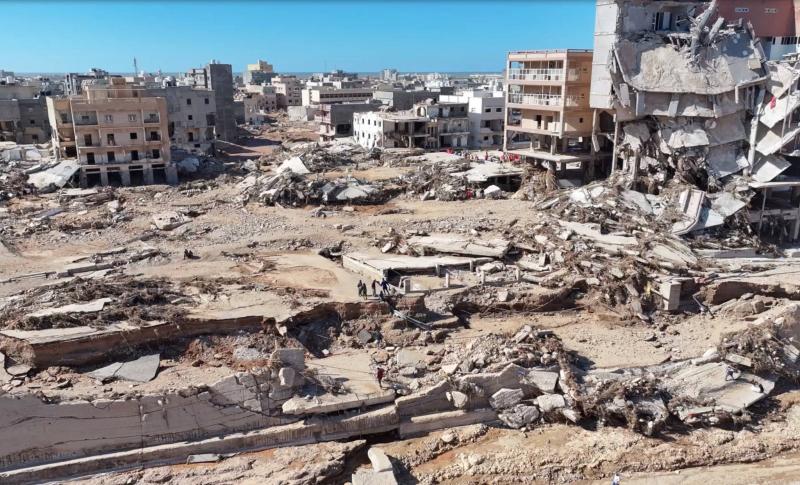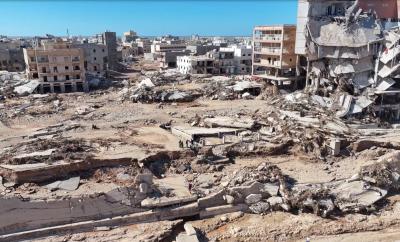Libyans from all over their divided country have crossed previous front lines and set aside bitter animosities to deliver aid to the devastated city of Derna, which was struck by floods and torrential rains. Elias Khbuli, a volunteer from Zawiya in the west and a member of the active group Al-Batris, stated, "We told ourselves there will definitely be a shortage of manpower for loading, unloading, driving, or any other matters." The group hired buses and vans to transport more than a hundred volunteers from western Libya to the eastern city of Derna on a Monday morning trip that took 15 hours, starting even before the full scale of the tragedy became clear.
The conflict that has plagued the country since 2011 has torn apart many communities in Libya, pitting cities against one another and dividing the country since 2014 into areas controlled by two rival governments in the east and west. Although a ceasefire in 2020 ended most of the major fighting and allowed for the reopening of roads and the resumption of travel between the warring regions, rival armed groups still control some areas, and there is no unified authority overseeing the entire country.
However, the two rival administrations have previously coordinated on some matters. Ministers from the Tripoli-based government in the west visited Benghazi in the east on Thursday. Tim Eaton from Chatham House remarked, "There is somewhat greater willingness to cooperate than I have seen at any time during the last decade." Some aid has come from the internationally recognized government in Tripoli, which is not acknowledged by factions in the east and is allied with armed groups that fought against Khalifa Haftar, the leader of Eastern Libya's forces (the Libyan National Army).
**The Tragedy Will Not Alleviate the Division**
Nevertheless, doubts remain. There are no indicators that the clouds of grief hanging over the country and the shared feeling of the magnitude of the tragedy will alleviate the stifling political crisis in Libya that has persisted for over a year, making the holding of general elections an impossible task. A relief source noted that authorities in the east have blocked foreign aid from reaching Derna via the internationally recognized government in Tripoli, which the eastern authorities refuse to acknowledge as legitimate. A source in the eastern administration denied this, stating that they did not refuse to direct aid through Tripoli.
Analysts warn that political leaders may seek to exploit the general feeling of unity in the country due to the disaster, positioning themselves to benefit from any long-term development funds. The conflict in Libya typically centers on control over and access to state financial resources. Eaton said, "When discussions start about all matters related to reconstruction and financial support, it will widen all the existing fractures in Libya."
However, long lines of trucks waiting to enter Derna on Thursday show that donations are arriving from all parts of the country in what the United Nations Office for the Coordination of Humanitarian Affairs described as a "wave of nationwide support... sweeping across Libya."
The entity managing the relief operations in Derna is the Eastern Libya forces (the Libyan National Army), which has controlled the east of the country and has been in open conflict with the authorities and groups in the west for years. Videos on social media, described by activists as vehicles from Tripoli that appeared to belong to the 444th Brigade, which is led by a commander who was part of the coalition fighting Haftar, showed them delivering aid to eastern Libya.




